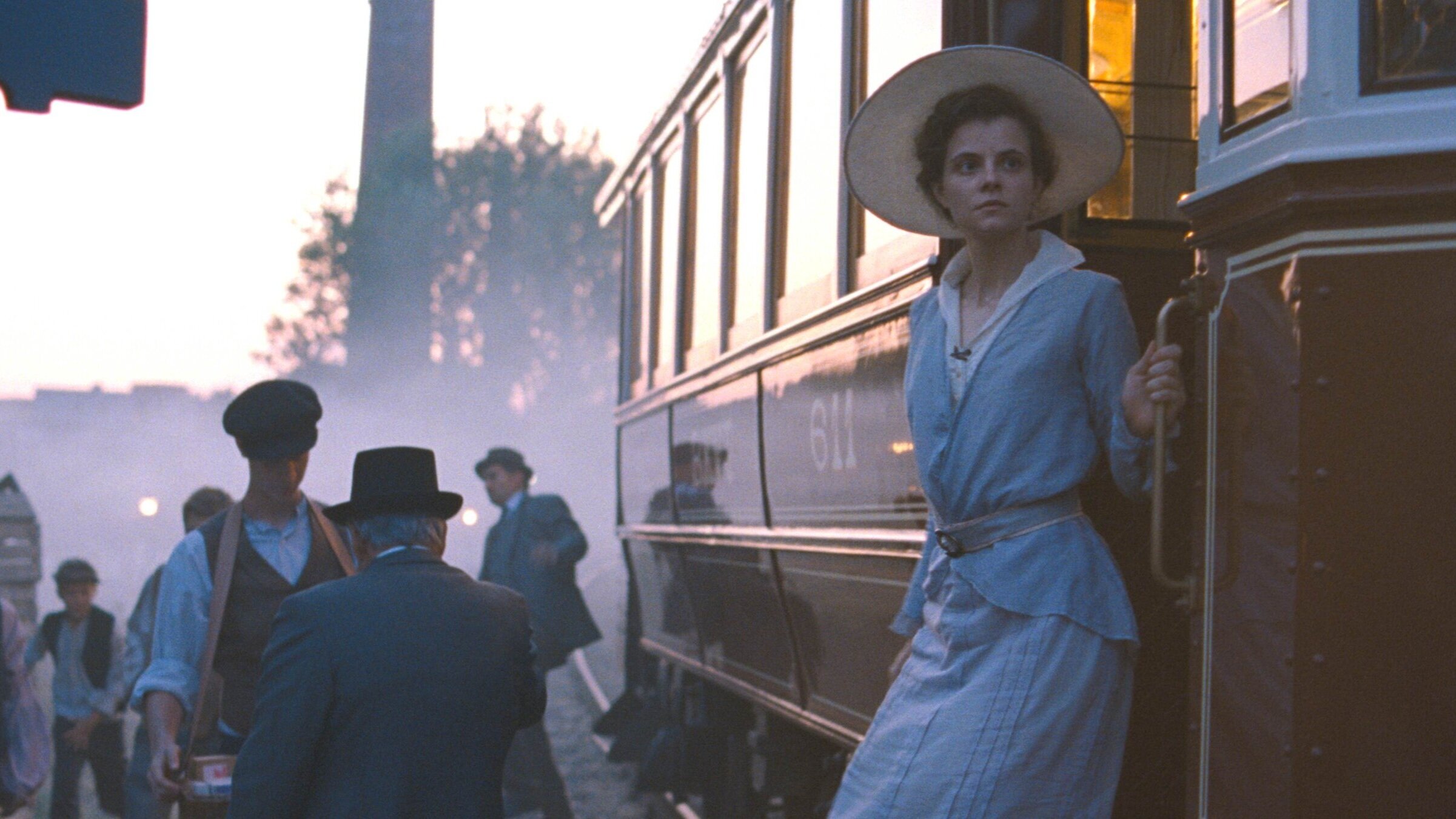Sunset
A vastly ambitious film from the Hungarian director who gave us Son of Saul.
Juli Jakab
Born in 1977, the Hungarian filmmaker László Nemes did not make his first feature until 2015, but that work, Son of Saul, was no ordinary debut and it brought him immediate international acclaim. His follow-up, Sunset, is very different in subject matter if not always in style: instead of the Nazi concentration camps, its setting is Budapest in 1913. The response has been different too in that Sunset has strongly divided critical opinion and that is understandable given that this time the story is tantalisingly elusive as to its exact meaning and long in its telling.
The central figure is Irisz Leiter (Juli Jakab) whose deceased parents had owned a hat store in Budapest to which she now returns many years later. A designer herself, she is taken on by the store’s current owner, Oszkár Brill (Vlad Ivanov) but soon finds that the Leiter name causes unease. Furthermore, she is told of a brother unknown to her who may or may not still be alive and whose infamous reputation may be just or unjust. Her determination to find out the truth about him and her refusal to be put off by those who warn her against it bring to mind that classic film The Third Man (1949) in which Holly Martins persists in discovering the truth about his friend Harry Lime only to learn that Harry is corrupt.
The parallel between these two films does not end there in that The Third Man both in its stylised shots (many strongly angled) and in its key use of its music score (the famous zither soundtrack) offers a model. Nemes’s visual stylisation is even more emphatic as he places the camera close to Irisz to encourage audience identification with her, even if what they see as she sets out on her quest is often the back of her head. At the same time he echoes Son of Saul by frequently putting the settings through which Irisz moves out of focus to a greater or lesser extent: this may suggest her own lack of certainty about the world around her, but one is thankful that Sunset was not shot in ‘Scope so that the distraction of it is bearable. As for the music, it plays a huge part here incorporating period pieces including Schubert’s ‘Death and the Maiden’ Quartet and a score by László Melis possessed of a modernity so emphatic as to suggest that Sunset should not be read as a mere period piece.
As the film proceeds other existing works seem to be echoed too: a subplot about young milliners selected for a sinister fate at the hands of royalty reminds one of the sacrificial rite that ends the ballet Le Sacre du Printemps while the fact that at the conclusion of Sunset we find ourselves in the trenches of the First World War suggests something akin to Michael Haneke’s masterpiece The White Ribbon (2009) in which human nature studied in the pre-war years is revealed as a pointer to what was to come.
The comparisons prompted taken together with some masterly use of cinema (that soundtrack in particular) ensured that, despite the film lasting 142 minutes, I remained intrigued throughout. Yet, due to plot points that remain obscure and to the sense that one is getting only a generalised impression of what Nemes wants to say, the overall feeling is that Sunset is less than satisfying. Arguably, the inability of the individual to know which people and which groups are trustworthy (Irisz veers over this throughout) is the point of the film, but such a theme ironically enough calls out for greater clarity and succinctness than is to be found here.
Original title: Napszállta.
MANSEL STIMPSON
Cast: Juli Jakab, Vlad Ivanov, Evelin Dobos, Marcin Czarnik, Dorottya Moldován, Judit Bárdos, Benjamin Dino, Balázs Czukor, Christian Harting, Levente Molnár, Julia Jakubowska, Sándor Zsótér, Móni Balsai.
Dir László Nemes, Pro Sipos Gábor and Rajna Gábor, Screenplay László Nemes, Clara Royer and Matthieu Taponier, Ph Mátyás Erdély, Pro Des László Rajk, Ed Matthieu Taponier, Music László Melis, Costumes Györgyi Szakács.
Laokoon Filmgroup and Playtime-Curzon Artificial Eye.
142 mins. Hungary/France/Italy. 2018. Rel: 31 May 2019. Cert. 15.


